Story
Bringing Addiction Out of the Shadows
Face it TOGETHER is changing hearts and minds, and transforming the way communities treat addiction
More than 20 million Americans over the age of 12 suffer from addiction. The rate of death from drug overdoses has tripled over the past 20 years, and the financial toll from addiction is staggering: more than $400 billion annually in healthcare costs and lost productivity.
A mere 7 percent of first-time clients of treatment programs get well, and the average addiction sufferer undergoes treatment between four and seven times. Clearly, traditional treatment models and the status quo aren’t enough.
Face It TOGETHER, a nonprofit based in Sioux Falls, S.D., aims to change that. A recipient of the 2014 Bush Prize for Community Innovation and a 2016 Bush Community Innovation Grant, the organization works across a wide range of community sectors — including businesses, faith congregations, healthcare service providers and more. It aims to transform the way addiction is perceived and addressed, using an innovative combination of data, cross-sector collaboration, chronic disease treatment models and community education.
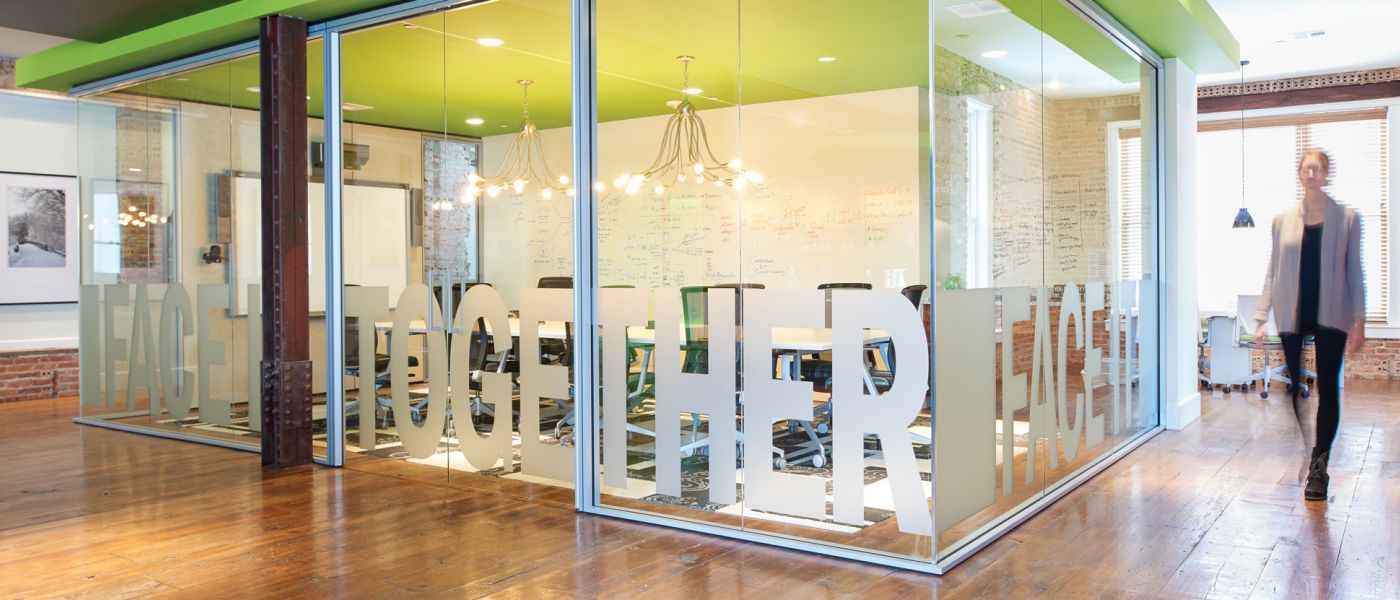
The space is airy and bright, with hardwood floors, exposed brick walls and transparent meeting rooms boasting floor-to-ceiling whiteboards. Aspiration and innovation permeate the atmosphere. “We were social entrepreneurs before we knew that such a thing existed,” says Face It TOGETHER CEO and Co-Founder Kevin Kirby. “We’re a bunch of entrepreneurs, using business tools — systems thinking and logic — to solve a social problem. We help communities frame questions and work collaboratively on effective solutions.”
Collaboration, inclusiveness and resourcefulness are the three main elements the Bush Foundation looks for in applicants for the Bush Prize. A collaborative, communal approach distinguished Face It TOGETHER from its genesis in 2008 and 2009. Back then representatives from the local business community, the criminal justice system, healthcare providers and other stakeholders participated in a series of town hall meetings over the course of seven months to discuss the problem of drug and alcohol addiction. Face It TOGETHER Sioux Falls grew out of those meetings, with a mission to reach into workplaces, schools, media and other influential community sectors to change hearts and minds about addiction.
Breaking down the silos between sectors to foster innovative, collaborative solutions underpins the philosophy of the organization.
“We asked ourselves back in the deep think tank days, who has a financial stake in solving this problem?” explains Kirby. “Clearly, there are quantifiable costs and repercussions in the employer community, in healthcare systems, in the criminal justice system. There are enough sectors with a financial stake in solving this problem that they’re going to [be motivated to] find a sustainable solution.” Breaking down the silos between these sectors to foster innovative, collaborative solutions underpins the philosophy of the organization.
Transformational Leadership
Chief Operating Officer Jim Sturdevant calls changing the status quo in addiction treatment and recovery the biggest transformational leadership challenge in the world, equating its magnitude and urgency to the Civil Rights movement. Chief Data Officer David Whitesock, a 2015 Bush Fellow, agrees: “We’re trying to work through a massive transformational change process that many people might blanch at. When you look at [all the interconnected contributing factors, such as] mass incarceration, failed health systems, people who can’t get work or can’t get housing, the depth of the problem is mind-blowing.”
Because the root causes and ripple effects of addiction are myriad, reaching into every facet of private, civic and work life, the solution needs to be equally expansive. “Only one thing needs to change in the community to solve this problem,” says Kirby. “And that’s everything. Every sector needs to be a part of the solution and remove the shroud of stigma, silence and shame around addiction. Every sector needs to change what it does.”
Getting Down to Business
Employers are the first community members Face It TOGETHER calls to the table when it expands into a new town. According to the National Council on Alcoholism and Drug Dependence, 70 percent of people battling addiction are employed, and costs of addiction to businesses are significant: an estimated 500 million lost workdays annually, plus higher healthcare costs, turnover and work-related injuries. From a bottom-line perspective alone, supporting addiction recovery is good business.
Through its Workplace Initiative, Face It TOGETHER Sioux Falls has partnered with more than 30 area employers to change workplace cultures around the issue of addiction.
“At my job, if I reveal that I have cancer, I’m likely going to get a cake auction, casseroles delivered to my home and people volunteering to walk my dog,” says Kirby. “But if they find out that you have addiction, traditionally [the response is that] you get fired. Come on.” The Workplace Initiative aims to remove barriers to seeking help for addicted people by mitigating that fear of punishment, and shifting the culture to one of support, encouragement and understanding.

For an annual investment of about $40 per employee, Face It TOGETHER works with businesses to deliberately shift their processes, policies and workplace culture to align with a commitment to supporting addiction recovery, in addition to providing all of their employees with access to addiction recovery resources.
One of the first businesses to sign on to the Workplace Initiative was Raven Industries, a diversified technology firm on the banks of the Big Sioux River in downtown Sioux Falls. Dan Rykhus, Raven’s president and CEO (and a board member of Face It TOGETHER), explains that the company had been involved in some worksite wellness initiatives, and as they started to examine what diseases are especially hard for team members to deal with, addiction emerged as particularly burdensome.
“We needed a way to help team members suffering from addiction in a meaningful way. We wanted to take the shame out of it and encourage more people to take action,” says Rykhus. “I have a background with addiction personally and with my family — it killed my brother — so I have a lot of insight into the damage it can cause.” Rykhus says that caring about employees’ health and wellbeing should not be a distinguishing feature for any company. “That should be table stakes. How could you come to any other conclusion? It’s the most logical, caring thing to do. The health of the company correlates with the health of its team members.” In the six years that Raven Industries has participated in the Workplace Initiative, about 40 of their 800 employees have found their way to Face It TOGETHER, and 11 entered some kind of treatment program.
Groomer’s Choice, a supplier of pet grooming supplies to pet salons nationwide, was another early adopter of the Workplace Initiative. Shortly before implementing it, three Groomer’s Choice employees resigned in a span of six months, all because of addiction-related issues. “We didn’t do anything to help them,” says Tim Ryan, vice president of marketing and sales for Groomer’s Choice. “They found their way out of the company, and we couldn’t do anything. Addiction was an issue for us, and we had no idea what to do.”
Participating in the Workplace Initiative was a clear, proactive way to begin to address that issue. From a metrics perspective, it was a no-brainer. “We believe it costs about $4,000 to turn over the lowest-paid position in our company,” says Ryan. For $2,000 (50 employees at $40 each), Groomer’s Choice would receive a 2:1 return on investment if the initiative helped them retain even one employee struggling with addiction and get them well.
Since implementing the initiative in 2014, the company is aware of three team members who have taken advantage of the recovery resources at Face It TOGETHER Sioux Falls. One employee, Jon Giblin, continues to actively participate in peer-to-peer coaching with recovery coach Dave Jansa. “I was hanging on with my claws to my job,” says Giblin. “I would come in two hours late and reeking. I could have been fired multiple times.” But it took a DUI and court-ordered alcoholism treatment for Giblin to be ready to make a change.
“When I started at Groomer’s Choice, they gave us the Face It TOGETHER info, and it had Dave’s contact information. I had thought about calling quite a few times before the DUI, but I continued on my way,” explains Giblin. “I was in [the court-ordered] treatment around Christmas, and I had a real tester of a day at work. I was going to go to the bar, but instead, I called Dave.” Giblin and Jansa have had a standing meeting every week since then. “It really hit me that the treatment I was going through was what the court wanted me to do, but Face It TOGETHER was something I wanted to do and held me more accountable.”
A Guiding Hand
Peer-to-peer recovery coaching is an integral part of Face It TOGETHER’s approach to helping addicted (or “sick”) people get well. While court-ordered treatment programs are often designed to be one-size-fits-all lectures or classes, peer coaching allows for a more tailored approach. “Dave has a lot of the same experiences as me, so [his coaching] is more personal,” explains Giblin. “I like the one-on-one attention that helps me with different aspects of my life. Treatment is by the book, ‘This is how you gotta do it.’ But Dave is seeing the bigger picture and helping me figure out the little things.” (Giblin gives the example of Jansa helping him figure out that if he opts for non-alcoholic beer or water instead of soda while playing darts with his buddies, his game won’t suffer from caffeine-induced shakiness — a hard-won lesson from Jansa’s own time on the golf course, and just the kind of detail the newly sober too often have to navigate alone.)
Like the traditional 12-step program sponsor model, peer recovery coaching centers on one-on-one relationships between a newly sober individual and one with some experience under his or her belt. But with anonymity and discretion being a core feature of most 12-step programs (along with the lack of an organizational budget for promotion), they can sometimes lack the visibility required to actively attract people who may need help and to combat shame and the idea that addiction is inherently something stigmatized.
The 12-step model is also only one among several available for addiction recovery, and while it’s a perfect fit for some, it’s not the right choice for everyone. “Alcoholics Anonymous has saved millions of lives,” says Kirby. “It’s a sacred organization to many people. I wouldn’t be alive but for AA. Sponsors help people work the 12 steps, but the emerging field of recovery coaching provides everything else that people suffering from a chronic disease could use on the bumpy journey of recovery.”
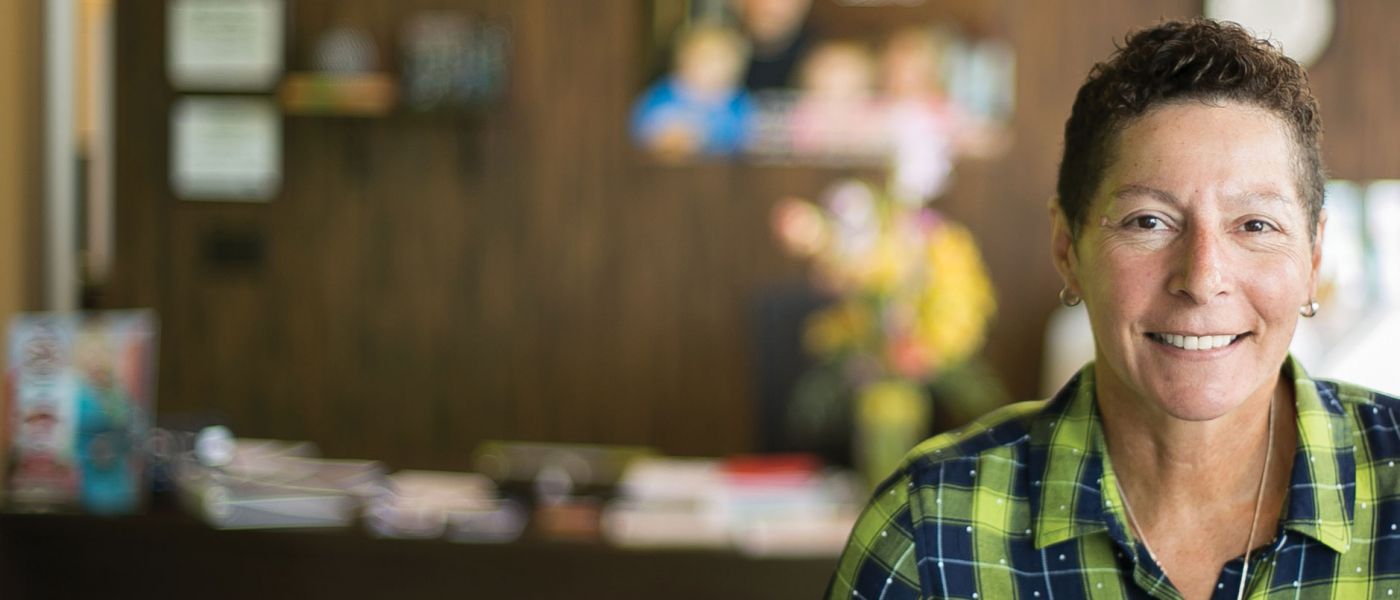
Face It TOGETHER’s recovery coaches serve as an independent, judgement-free clearinghouse of the resources available in any given community, connecting people with a whole range of options, from SMART recovery to counseling to AA, in addition to housing and employment assistance. Recovery coaches also have rigid metrics for performance, with periodic evaluation of outcomes an integral part of the process, and they undergo formal training designed to help them be powerful allies on the road to recovery.
Terri Brown is the Lead Recovery Coach for Face It TOGETHER Sioux Falls, responsible for onboarding other coaches in addition to maintaining her own roster of clients. She has been in recovery for more than 18 years and, knowing the importance of building trust, showing empathy and modeling a hopeful vision of what’s possible, she shares her story freely with those at earlier stages of their recovery journeys.
“I understand recovery and how it works because of what I went through,” says Brown. When a new client comes to the Sioux Falls recovery center, the team works with him or her to determine which coach will be the best fit. Each of the three full-time coaches has a unique history that helps him or her connect with members of various demographics. Jansa is described as the ‘white-collar guy,’ who also excels with families. Mike Landon, a Vietnam veteran, works well with older men and members of the military, while Brown connects easily with women who have a history of sexual trauma and people who have been incarcerated.
As Face It TOGETHER continues to expand to other markets that must assemble and train their own coaches, Brown stresses the importance of having a diverse team. “You need people who are super empathetic and who have a host of things under their belts,” she explains. “If you’ve never been incarcerated or experienced trauma, it might be harder to relate [to people who have been]. You want someone who has lived that life. I think the more raw a person is, the more they’ve been through, the better candidate they are to be a recovery coach.”
Recovery coaching is 100 percent free of charge for everyone in the community, whether they’re affiliated with one of the Workplace Initiative companies or not, and regardless of whether it’s themselves or a loved one struggling with addiction. Face It TOGETHER is committed to connecting people to addiction recovery resources without adding a financial burden to their plates.
And it does so in a modern, bright space with a high degree of visibility and pride of place. “We want to make people feel good,” says Brown. “We want to show them, ‘You are worth this; you deserve to be in an environment that’s bright, airy and cheerful, versus dingy, dark and shabby.’ This Sioux Falls recovery center is the pilot, and we’re setting the tone for everyone else.”
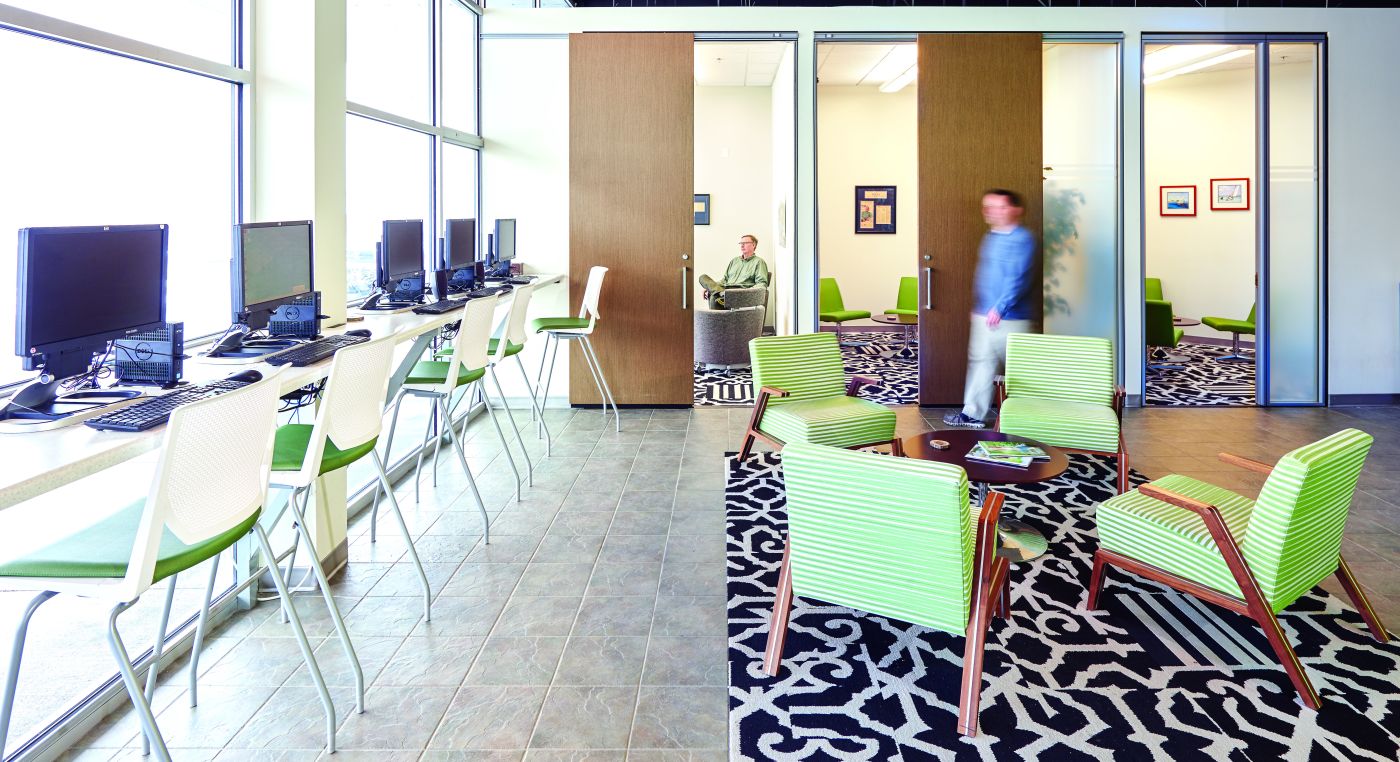
Gotta Have Faith
While the nationwide Face It TOGETHER affiliates have all implemented their own Workplace Initiatives and partnered with various stakeholders in their own communities, Face It TOGETHER Sioux Falls is pioneering another initiative that the others will soon be able to look to as a model. The new initiative, Communities Facing Addiction, partners faith communities with Face It TOGETHER to shift how addiction is perceived and addressed within congregations.
Reverend Bill Tesch, Director of Evangelical Mission for the South Dakota Synod, has been instrumental in Face It TOGETHER Sioux Falls’ outreach into the faith community. He also serves on the Face It TOGETHER Sioux Falls board. Part of Tesch’s work involves gathering with other denominations and community organizations at a “mission strategy table” to listen for what God is calling the community to work on. “We happened to be dwelling with some of the gospels where Jesus counteracts the shame and stigma people are living with because of some illness or infirmity,” explains Tesch. He describes a story from the gospels about a woman who has had a flow of blood for 12 years and has been totally shunned by her community. “She’s very deep in shame, but Jesus acknowledges her and lifts her up, not only providing physical healing but also counteracting that stigma and shame. There are a lot of parallels with that and the way we experience addiction in our communities.”
Tesch explains that gospel story as a wakeup call around the way faith communities have been complicit in stigmatizing people with the disease of addiction as weak or deficient. “If you had a kidney disease and you knew I thought that was a moral failing on your part, you wouldn’t be very forthcoming about seeking help with that,” says Tesch. “Partnering with Face It TOGETHER is an opportunity to see a real shift in our congregation and offer greater hospitality to addiction sufferers and their families.”
Communities Facing Addiction is currently being piloted with eight congregations in the Sioux Falls area. The initiative incorporates education about the disease of addiction with scriptures and sermons throughout the year, reinforcing a message of support and compassionate understanding. Around 40 recovery advocates have been trained across the eight congregations to be soft landing spaces where community members of the same faith can go for resources and a warm welcome.
Measure By Measure
One of the most critical elements of Face It TOGETHER’s approach is a firm commitment to data, metrics and evaluation — an area where they’re setting a new national standard within the field of addiction treatment and recovery. In March 2014, Face It TOGETHER Sioux Falls launched the Addiction Wellness Evaluation Program, which measures an individual’s wellness outcomes and factors that sustain wellness. A key component of the evaluation program is the Recovery Capital Index (RCI) score, which provides a comprehensive baseline on which to gauge each person’s progress and tailor their treatment and support.
Each Face It TOGETHER client takes the RCI survey every six weeks. It consists of 68 questions across three domains — personal, social and cultural capital — that aim to gauge everything from general health, employment and nutrition to family support, sense of purpose, sense of community and access to healthcare. The RCI is scored on a scale of one to 100, with the individual score reflecting a person’s current circumstances, and the changing score over time becomes a way to track overall well-being, taking into account many more factors than the simple presence or absence of substance abuse.
The evaluation program uses a customized technology platform, Axis, that links with survey instruments to help individuals and care providers better understand a sufferer’s progress toward wellness. Data and results can be linked with healthcare provider efforts to measure the efficacy of clinic and treatment initiatives, offering for the first time the ability to capture outcomes across an entire continuum of care for the disease of addiction.
The effectiveness of Face It TOGETHER’s initiatives across all of its locations is also rigorously evaluated through the use of awareness surveys deployed before and throughout implementation. These surveys measure perceptions and attitudes toward addiction, looking, for instance, at whether community members view it as a moral failing. “These surveys give us a baseline of what people are thinking about addiction and how that awareness changes through intentional culture shifts,” says Face It TOGETHER Sioux Falls Executive Director Monique Johnson.
The evidence and data that resulted from Face It TOGETHER’s commitment to measuring outcomes was critical to its winning the prestigious and competitive Bush Prize in 2014. Bilal Alkatout, Community Innovation associate at the Bush Foundation, explains, “Face It TOGETHER won the Bush Prize in recognition of its accomplishments in Sioux Falls. They could demonstrate that they changed the status quo and that their leadership was inclusive and collaborative.” The Foundation then encouraged Face It TOGETHER to apply for the Community Innovation Grant, which they were awarded in 2016, to scale their proven process to other communities. “It’s going to look slightly different in every community,” says Alkatout, “and that’s going to be the next level of the problem solving process for them.”
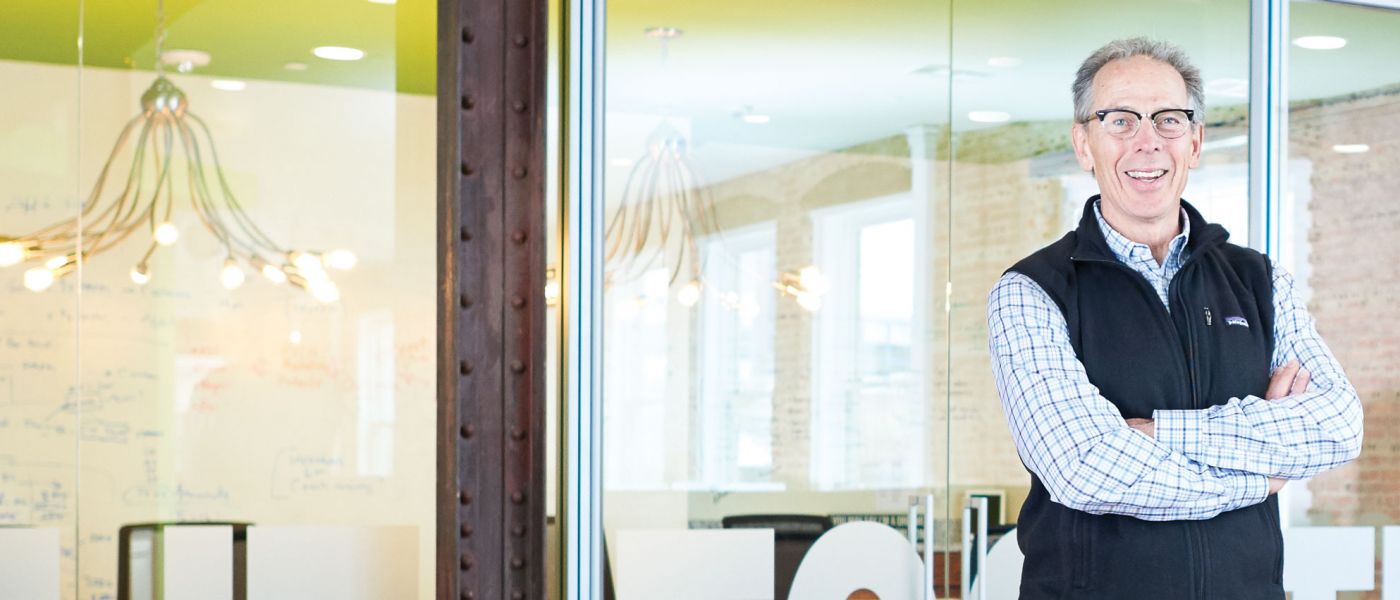
Today Face It TOGETHER operates affiliates in New Hampshire, Massachusetts, Bemidji, Fargo, Bismarck and Sioux Falls, with Denver coming soon. “We don’t spend time with a map on the wall, charting our next affiliates,” says CEO Kirby.
Kirby’s vision is to eventually expand Face It TOGETHER to every population center in the United States. “I’m convinced that in my lifetime I’ll live in a country that has solved drug and alcohol addiction,” he says, pointing to how over the past 30 years breast cancer has come out of the shadows to become a major part of our culture and dialogue. “Sports teams wear pink, and people support that cause in a big and vocal way. Support and visibility need to happen at the community level. Every population center needs something like our Recovery Center.”
Continue reading
-
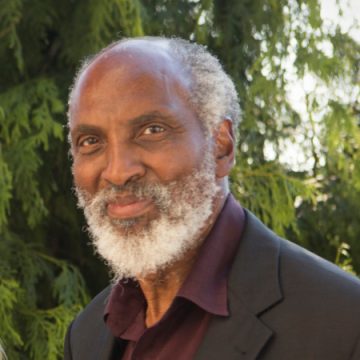
News
Power of Bridging event
Mark your calendars for a special community event with john a. powell! Thanks to our friends at MPR News, we'll be hosting john at the Fitzgerald Theater on December 2 and hope you can join us!
-

News
Celebrating the 2025 Bush Prize honorees
Learn more about the 2025 Bush Prize honorees who are helping to make our region better for everyone!
-

News
Welcome to new Bush staff members
We are celebrating some new Bush colleagues and hope you get to meet them soon!